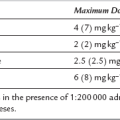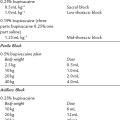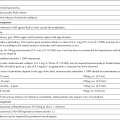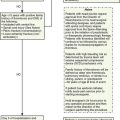The complex interplay between gut health and sleep quality is a field of study that is gaining attention from scientists. Trillions of bacteria make up our gut microbiome, which may be essential for controlling sleep cycles. Understanding this relationship depends on comprehending the gut-brain axis, a sophisticated communication network that connects the two organ systems.
Certain gut bacteria have been linked to both comfortable sleep and sleep disruptions, according to recent studies reported by BBC. We’ll examine the most recent research on this subject and useful advice for promoting gut health.
Exploring the Gut-Brain Association and Its Effect on Sleep
The gut-brain axis functions as a communication network involving hormones, neurons, and the immune system. It operates in both directions between the brain and the gut. Owing to this link, the gut microbiota can affect brain functioning, including how sleep and wake cycles are regulated.
Certain microorganisms in the gut create neurotransmitters that are essential for controlling sleep, such as gamma-aminobutyric acid (GABA) and serotonin. The synthesis of these neurotransmitters may be modulated by the gut microbiota. This can affect the quality of sleep, according to a 2024 study published in Nature, which terms these neurotransmitters ‘Postbotics’.
The paper notes that certain Lactobacillus and Bifidobacterium species produce GABA, a neurotransmitter that promotes relaxation and sleep. Conversely, dysbiosis, or an imbalance in gut flora, has been connected to GABA-related disorders such as Parkinson’s disease and Schizophrenia.
Specific Gut Bacteria and Their Role in Sleep
It has been determined that several certain gut bacteria are important regulators of sleep patterns, including:
- Lactobacillus rhamnosus: Known for its capacity to generate GABA, this bacteria has been demonstrated to lessen anxiety and depression. Eventually, it enhances the quality of sleep.
A 2022 research discovered that giving people with sleep issues Lactobacillus rhamnosus supplements greatly increased their sleep length and quality.
- Akkermansia muciniphila: While primarily known for its role in maintaining gut barrier integrity, Akkermansia muciniphila may also regulate sleep. This bacterium was associated with fewer sleep disturbances and better sleep quality, per a 2022 study.
- Bifidobacterium longum: Higher concentrations of Bifidobacterium longum were associated with improved sleep efficiency and decreased sleep fragmentation, according to research from 2024. Short-chain fatty acids (SCFAs), such as butyrate have anti-inflammatory qualities. It can enhance sleep by lowering systemic inflammation, which is produced by the bacteria Bifidobacterium longum.
Actionable Tips for Enhancing Gut Health to Improve Sleep Hygiene
Given the strong link between gut health and sleep, maintaining a healthy gut microbiome can enhance sleep hygiene.
Incorporate Probiotic-Rich Foods Into Your Diet
Eating foods high in probiotics, like kefir, yogurt, sauerkraut, and kimchi, supports gut colonization with beneficial bacteria. These foods help increase good bacteria such as Bifidobacterium and Lactobacillus in the gut. Taking probiotics daily is linked to better sleep, as determined by the PSQI global questionnaire, along with fewer symptoms of insomnia.
You can get personalized dietary advice by consulting healthcare professionals qualified in nutrition, including those trained through ABSN programs. They can help identify probiotic-rich foods that align with your tastes and dietary needs. Also, they advise you on how to eat these foods to get the most benefit for gut health.
Steer clear of Consuming Excessive Sugar and Processed Foods
Sugar- and processed-food-rich diets can cause dysbiosis, which aggravates sleep problems. Diets heavy in refined carbohydrates and low in fiber are associated with poor sleep quality. Such eating patterns increase the incidence of insomnia, which is highlighted by research published in the Journal of the Academy of Nutrition and Dietetics.
Online ABSN Programs say that the course covers nutrition and patient care. Further, they emphasize that these learning resources give patients continued encouragement and support while they cut back on processed foods. Along with helping you recognize bad eating patterns, your dietitian may also provide healthier substitutes.
Consider Taking Prebiotic Supplements and Dietary Fibers
Non-digestible fibers called prebiotics nourish good gut flora. Prebiotic supplements, including those containing fructooligosaccharides or inulin, can support the upkeep of balanced gut flora. Moreover, such supplements enhance sleep quality. Also, it lengthens the amount of time spent in restorative deep sleep, as per a paper published in ACS Chemical Neuroscience.
Additionally, dietary fibers are crucial for encouraging the development of advantageous gut flora. Fruits, vegetables, and whole grains are examples of foods high in fiber. These can promote the generation of SCFAs, which have been found to improve sleep. To guarantee the best outcomes, it’s critical to keep an eye on these supplements’ efficacy and modify recommendations as necessary.
FAQs
What effects can stress have on gut health?
Stress causes dysbiosis in the stomach, which impairs immunological response, digestion, and sleep by interfering with serotonin synthesis. This disturbance frequently results in restless nights, setting off a vicious cycle that deteriorates gut health and stress. Also, stress can trigger the release of pro-inflammatory cytokines, which can lead to chronic inflammation in the gut.
Can digestive issues cause sleep problems like insomnia?
Gut health issues can indeed contribute to sleep problems like insomnia. They can influence melatonin levels and induce inflammation, both of which cause sleep disruption. The bidirectional relationship means that poor sleep can further harm gut health, creating a cycle of worsening symptoms.
What part do fermented foods play in improving sleep quality and gut health?
Probiotic-rich fermented foods improve gut health and improve sleep quality. They promote better sleep by reducing inflammation and increasing the synthesis of healthy short-chain fatty acids. Serotonin, derived from tryptophan is found in fermented foods. It’s a predecessor to melatonin, the hormone that regulates sleep cycles.
What effects does meal timing have on sleep and intestinal health?
Sleep disturbances and indigestion might result from eating late at night. Eating late at night, especially heavy or high-carbohydrate meals, can disrupt your sleep patterns. To promote better sleep, try to finish your last meal at least 2-3 hours before bedtime.
The expanding research on gut health and sleep patterns offers significant potential for improving sleep hygiene and overall well-being. People need to improve their gut health and be aware of how particular gut bacteria affect sleep. This way, they can be more thoughtful and have more restful and rejuvenating sleep.





